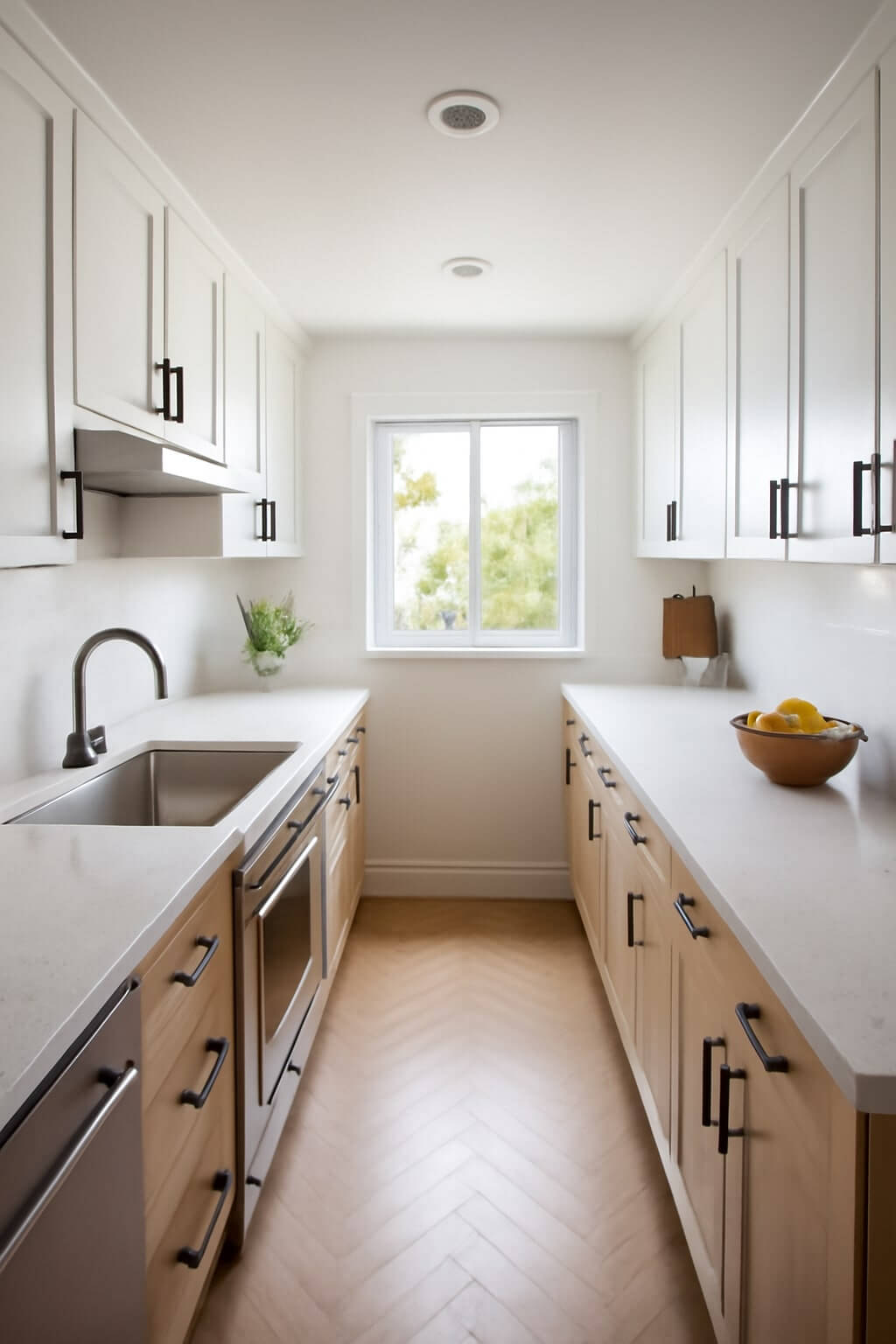When considering kitchen remodeling, you might wonder if any of those expenses are tax deductible. The answer isn’t straightforward, as it depends on various factors like the purpose of the renovations and how they enhance your property. Understanding what qualifies can help you maximize potential benefits. Let’s explore the specific scenarios in which your kitchen upgrades could lead to tax deductions.
Key Takeaways
- Assess if improvements increase home value or prolong lifespan, as these may qualify for tax deductions.
- Determine if renovations are for medical or energy-efficient purposes, which can also be deductible.
- If the kitchen serves as a home office, document costs related to the office portion for potential deductions.
- Differentiate between capital improvements and routine repairs, as only capital improvements are deductible.
- Maintain thorough documentation of all expenses, including receipts and invoices, to substantiate your claims.
Understanding the Basics of Tax Deductions for Home Improvements
When considering home improvements, you might wonder how they impact your taxes. Understanding tax benefits related to home equity can help you make informed decisions.
Generally, improvements that increase your home’s value or prolong its life may qualify for tax benefits, especially if you sell your home. Additionally, if you finance improvements through a home equity loan, the interest might be deductible, further enhancing your tax situation.
Keep in mind, though, that not all renovations guarantee deductions. It’s essential to consult with a tax professional to navigate the specifics and maximize your potential benefits effectively.
When Kitchen Remodeling Qualifies as a Deductible Expense
Determining if your kitchen remodeling qualifies as a deductible expense often hinges on specific scenarios.
To assess deduction eligibility, consider the remodeling criteria set by the IRS. If improvements are made for medical purposes or to enhance energy efficiency, you may qualify for deductions.
Assessing kitchen remodeling deductions requires understanding IRS criteria, especially for medical or energy-efficient improvements.
Additionally, if you’re renting out your property, expenses related to maintaining or upgrading the kitchen can also be deductible.
Always keep thorough documentation, as it’s essential for substantiating your claims. Consulting a tax professional can further clarify your options and guarantee you’re taking advantage of all potential deductions related to your remodeling project.
The Impact of Home Office Deductions on Kitchen Renovations
If you’ve designated part of your kitchen as a home office, the renovations you make could impact your tax deductions.
When you improve that space, you might be eligible for tax benefits related to home office deductions. For instance, if you remodel to enhance functionality, a portion of the expenses may be deductible.
Keep in mind that the extent of your deductions often relates to the percentage of your kitchen used for business purposes.
Document your costs and consult a tax professional to guarantee you’re maximizing your tax benefits while staying compliant with IRS regulations.
Capital Improvements vs. Repairs: What’s the Difference?
When you’re remodeling your kitchen, it’s essential to understand the difference between capital improvements and routine repairs.
Capital improvements enhance your property’s value or extend its life, while repairs simply maintain its current condition.
Identifying these distinctions can impact your tax deductions considerably.
Defining Capital Improvements
Understanding the distinction between capital improvements and repairs is essential for any homeowner considering kitchen remodeling.
Capital improvements enhance your home’s value or extend its lifespan, like adding new cabinets or upgrading appliances. These upgrades often carry tax implications, potentially allowing you to deduct them when selling your home.
In contrast, repairs simply maintain your kitchen’s current condition, such as fixing a leaky faucet, and don’t contribute to your home’s overall value.
Identifying Routine Repairs
While you might think all renovations enhance your home’s value, distinguishing between routine repairs and capital improvements is essential for managing your remodeling budget and tax implications.
Routine maintenance includes tasks like fixing leaky faucets or replacing worn-out cabinet hardware. These activities typically involve lower repair costs and don’t increase your home’s overall value.
Conversely, capital improvements, such as installing new countertops or expanding your kitchen, add significant value and may be tax-deductible.
Understanding this difference helps you make informed decisions and maximize your investment while ensuring you maintain compliance with tax regulations.
Selling Your Home: How Remodeling Affects Capital Gains
When you sell your home, the remodeling you’ve done can greatly affect your capital gains.
Enhancements to your property can increase its value, potentially reducing the taxes you owe on the profit from the sale.
Understanding these implications is essential for maximizing your financial return.
Capital Gains Implications
Remodeling your kitchen can greatly impact your home’s value, which in turn affects your capital gains tax when you sell your property.
When you improve your kitchen, you increase your home’s overall worth, potentially leading to higher capital gains upon sale.
Keep in mind that the IRS allows you to deduct certain expenses from your home’s basis, which can reduce your taxable gains.
However, not all remodeling costs qualify, so understanding the tax implications is vital.
Always consult a tax professional to navigate these complexities and guarantee you’re maximizing your potential deductions when selling your home.
Home Sale Enhancements
Improving your kitchen not only enhances your living space but can also greatly influence your home’s market appeal and selling price.
By investing in kitchen remodeling, you can substantially boost your home value, especially if you align your updates with current market trends. Buyers often seek modern, functional kitchens, and well-executed renovations can make your home stand out.
Additionally, the upgrades can minimize capital gains tax when you sell, as they increase your property’s basis.
Ultimately, a thoughtful kitchen remodel can yield a higher return on investment, making it a smart choice for future sales.
Documenting Your Kitchen Remodel for Tax Purposes
To guarantee your kitchen remodel is eligible for tax deductions, it’s crucial to keep thorough documentation throughout the process.
Start by documenting expenses related to materials, labor, and any permits. Save all receipts and invoices, as they serve as proof of your spending.
Create a record-keeping system—whether digital or physical—that organizes these documents by date or category. This not only simplifies your tax filing but also provides a clear picture of your investment in the remodel.
Consulting a Tax Professional: Best Practices for Homeowners
Have you considered how a tax professional can enhance your understanding of kitchen remodeling deductions? Their expertise can provide invaluable tax advice and improve your financial planning.
Consider consulting a tax professional to deepen your understanding of kitchen remodeling deductions and enhance your financial planning.
To make the most of your consultation, keep these best practices in mind:
- Prepare Documentation: Gather all receipts, invoices, and records related to your remodel.
- Discuss Your Goals: Clearly communicate your remodeling objectives and how they relate to your home’s value.
- Ask Questions: Don’t hesitate to inquire about potential deductions and long-term financial implications.
Consulting a tax professional guarantees you maximize deductions while staying compliant with tax laws.
Conclusion
In summary, determining if your kitchen remodeling is tax deductible hinges on the purpose of the renovations. If they enhance value, extend lifespan, or cater to medical needs, you might qualify. Don’t overlook potential deductions for energy-efficient upgrades or home office improvements. Keep meticulous records of all expenses and consult a tax professional to navigate IRS regulations effectively. By doing so, you can maximize your benefits and guarantee compliance while enhancing your home.




